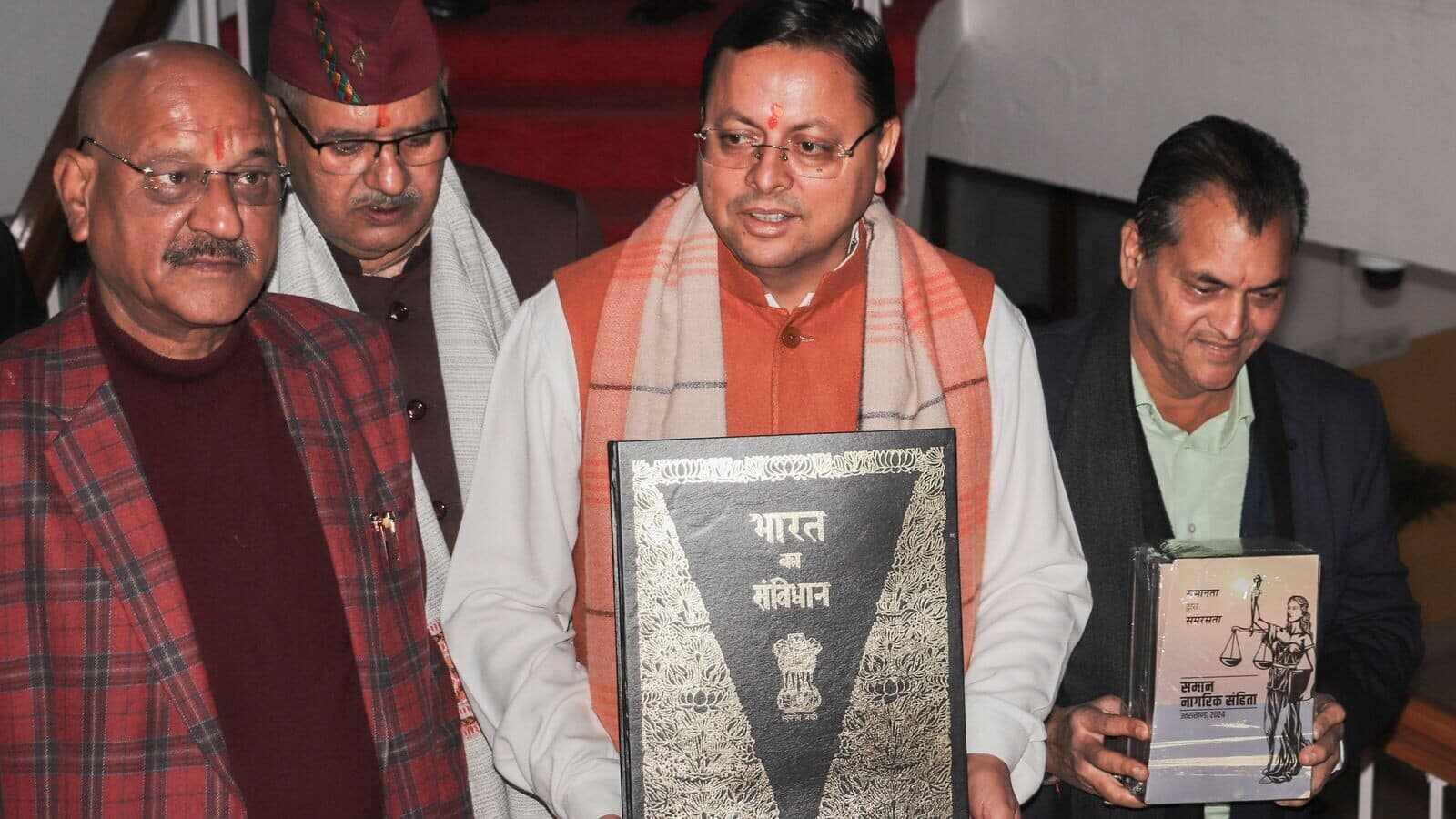
Uttarakhand: What are the rules for marriage registration under UCC
What's the story
The Uttarakhand government has laid down rules for marriage registration under the Uniform Civil Code (UCC), which includes clarity of legal provisions for marital conditions and protection of individual rights and social harmony.
The code seeks to standardize personal laws concerning marriage, divorce, succession, and inheritance.
It applies to all Uttarakhand residents, including those living outside the state.
Registration rules
UCC mandates registration of marriages, excludes certain groups
The UCC mandates marriages to be registered within 60 days of solemnization.
Marriages solemnized between March 26, 2010, and the Act's implementation must be registered within six months.
For marriages before this, registration is optional if legal criteria are met.
The Act specifies marriage can only be between individuals without a living spouse and who meet age and mental capacity requirements.
Prohibitions and protections
UCC addresses live-in relationships, prohibits certain practices
The UCC also tackles issues such as live-in relationships, making sure they are registered within 30 days to avoid penalties.
The code bans practices like polygamy, polyandry, halala, iddat, and talaaq.
It guarantees equal property rights to women in all religions.
Children born out of live-in relationships will also have equal inheritance rights.
Code details
UCC's extensive coverage and implementation process
The UCC comprises seven schedules and 392 sections addressing different aspects of personal law.
It was one of the major agenda items of the Bharatiya Janata Party in the 2022 state elections in Uttarakhand.
A five-member panel headed by Justice Ranjana Prakash Desai drafted the code following extensive public consultations.
The Uttarakhand cabinet approved the rules for implementing the UCC on January 20, 2025.
Rollout plans
UCC rollout and compliance facilitation
Chief Minister Pushkar Singh Dhami said that this initiative would begin in Uttarakhand and may spread to other states.
The code is likely to be rolled out around January 26 or 28.
A cloud-based portal with Aadhaar-linked verification will ease compliance with the new rules.
Common Service Centres will assist in remote areas with registration processes.